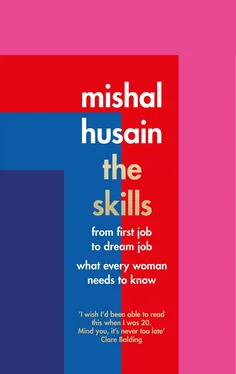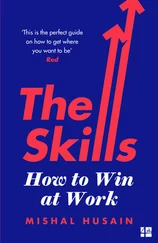None of this has held me back, but I do wonder whether men set off on their careers with an expectation of advancement, while women can feel under pressure to prove themselves. I’m also struck by the tricky transitions in and out of the workplace that are par for the course in most women’s lives – and the worries that come with them: will their maternity cover be better than them? Will the juggling of career and family work out?
Bearing the weight of childcare responsibilities can also reduce women’s ability to take advantage of job offers that might boost their salary, because they’re more tied to their commute, working hours and keeping their routine unchanged. And when they take up part-time and flexible working options the result can be a disproportionate wage penalty, a promotion penalty or simply a perception that priorities now lie elsewhere. Ellen Kullman, who was one of the most powerful women in American business when she was running the corporate giant DuPont, has said that during her time there women were being promoted every 30–36 months, while men were moving on every 18–24 months. The perception seemed to be that the women needed longer to show their capability. 7
Phase one of my own working life began when I got into broadcasting in the mid-1990s. I felt an immense thrill at getting a foot in the door of the industry, although this period also included working overnight shifts, when it was hard to feel optimistic or energised about anything. Not long afterwards, however, I got a break into live presenting, which came while I was working in the BBC’s business and economics unit. Producers would sometimes have the chance to give a brief on-camera summary of the day on the financial markets, and after doing this a few times I was offered some reporting shifts. One week, there was a gap in the business presenters’ rota and I was asked to fill in, my knees shaking as I did so. But one thing led to another – I never went back to being a producer and later moved from business coverage to the international channel BBC World News.
That is how what I now think of as the middle phase of my career began, coinciding with an intense period in my personal life – twenty months after the birth of my first son, I had twin boys. Returning to work after my second maternity leave proved a fine balancing act, in which the overriding concern was to keep life as simple and manageable as possible, rather than trying anything new. Gradually, though, the domestic rhythm became more settled and I started to wonder what the next stage of my career could potentially involve. As Radio 4 had been a companion to my life from the age of seventeen – when a wise person advised me that listening would be good preparation for university interviews – I knew I would love to work there. But I had no experience in radio production or reporting, let alone presenting. The only way I could gain some, and get my voice on air, would be to use my days off to do occasional shifts, filling in on news and other factual programmes in the hope that it might stand me in good stead for any future opportunities.
None appeared to be forthcoming. I was fortunate that the BBC was a large enough organisation to have a variety of internal possibilities to explore, which meant I could dip my toe into new waters and gain exposure while still having the security of my main role as a news presenter. But it was an odd and often disheartening time, as I made ad-hoc appearances on unfamiliar programmes, wondering if I was in danger of becoming a jack-of-all-trades. What motivated me was the strong sense that I had but one life to see how far I might be able to progress – I didn’t want to look back later on and wish I had tried a bit harder.
I realised, however, that there was a downside to how opportunities had come my way thick and fast a few years before, when I started presenting. I had been asked to do one interesting thing after another, been based in Singapore and Washington, and reported frequently from other parts of the world too. I had rarely had to push for a particular opportunity or project, with the result that by this stage I was missing an essential skill: being able to make a pitch for myself. I went to see one BBC editor or executive after another, asking if they might try me out, but found I was lacking a compelling answer to the inevitable question: ‘What is it that you want to do?’
Over time, there were some valuable lessons: I learned to be straightforward and clear about what I was asking for; to be ready to turn my energies towards a new avenue if the first one didn’t work out; to keep an open mind and explore multiple options, even though that sometimes felt overwhelming; to do my best to express my hopes and ambitions without apology or diffidence – even if it felt excruciating at some moments and pushy at others.
From there I started to think about a set of skills relevant to career troughs as well as peaks, adaptable to different settings and transferable even in the event of a complete career change. Every projection about the future of work suggests that mobility will be increasingly important – perhaps the disruption will even bridge some of the workplace gender gaps we see today, if it becomes more common for men and women to shift gear, go part-time or take time out to retrain or for family reasons.
There is more to do to help people achieve their potential at work. But when I contrast my experience of working life with that of my mother, I feel a deep gratitude. For all the emphasis on education in my family, the idea that it could be used to forge a career and for that career to exist alongside motherhood, is a novel one. My mother gained two degrees in Pakistan and became a producer at Pakistan Television when it was first set up in the 1960s. But all around her, it was accepted that marriage and motherhood were more than likely to bring any nascent careers to an end.
Her own marriage brought her to the UK in 1972 and I was born in 1973. With my father working long hours in the National Health Service in Northamptonshire and Bedfordshire, I was her full-time job. She told me years later that there were times when she would watch the Asian programming coming out of the BBC in Birmingham and long to be a part of it, to use her experience and have an identity in this new country beyond that of wife and mother. It was never going to be possible – she had a baby to look after and any family members who might have helped out were far away. Childcare and travel costs would have been an unjustifiable addition to an already tight household budget.
It is not in my mother’s nature to be bitter about what might have been, but her experience reminds me not to lose an appreciation of the doors that have been open to me, one generation on. Changed attitudes to women and to ethnic minorities have both played a key role in my life chances – not so long ago it would have been hard to imagine someone with a name like mine fronting a national news programme. That is not to say that I find my own combination of motherhood, marriage and work easy – or even always manageable. But I often think back to what I heard the then head coach of UK Athletics, Charles van Commenee, say just ahead of the London Olympics. Having coached many athletes to medals, he said he always tried to make them appreciate that pressure would be an ongoing part of their lives. ‘I tell them – it’s uncomfortable out there,’ he said. The words resonate with me because alongside the many privileges of my job are the difficult aspects – in particular the scrutiny. I cannot have one without accepting the other, and I have but this one life to make the most of what comes my way.
Each generation must create its own reality and find its own identity
Читать дальше












